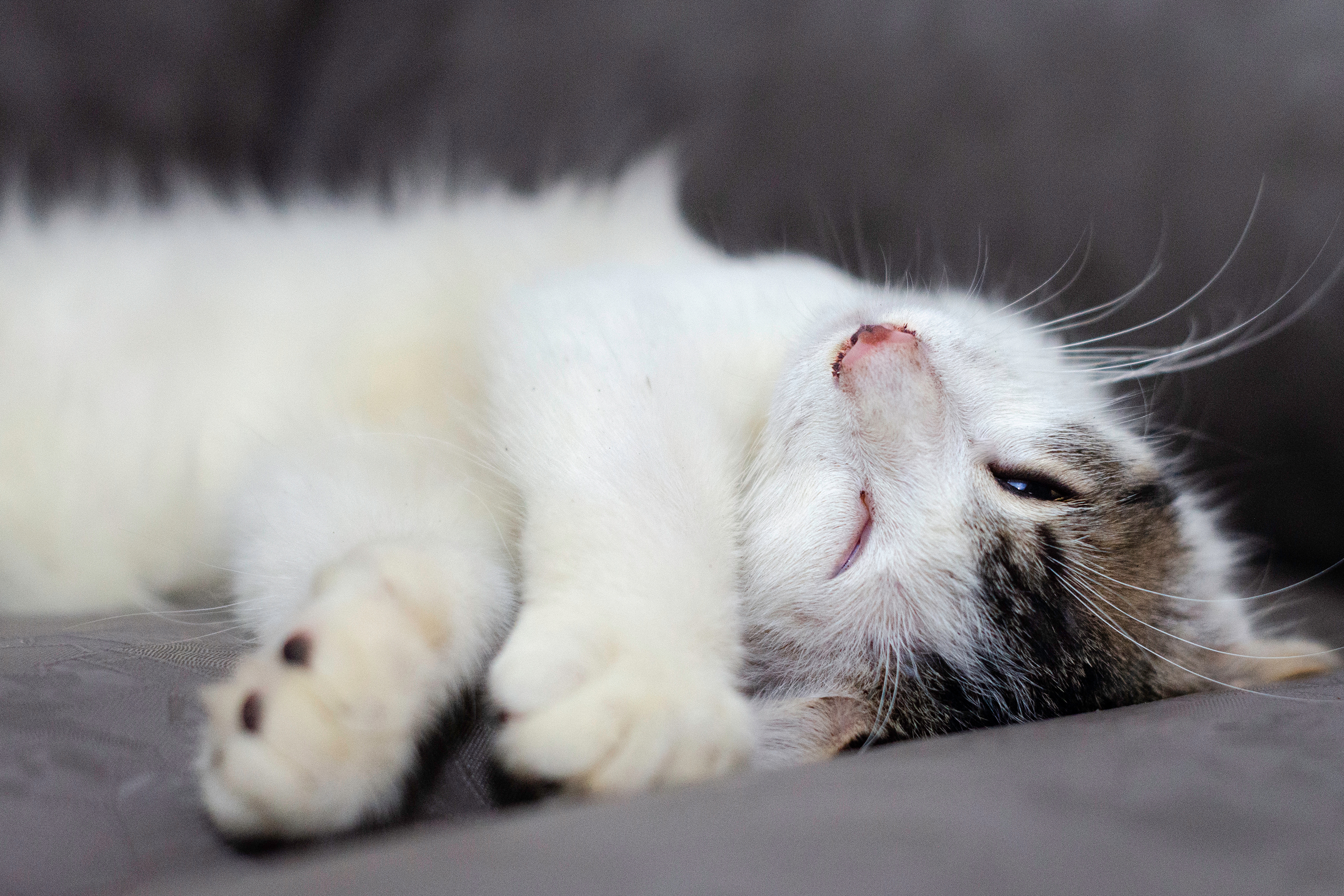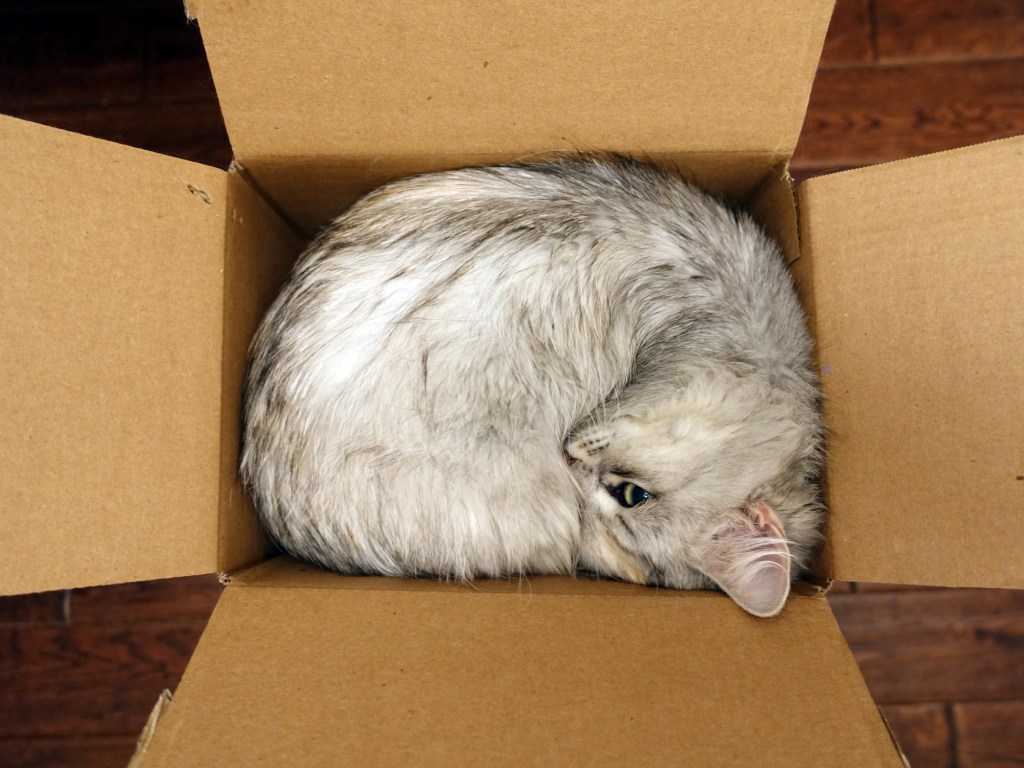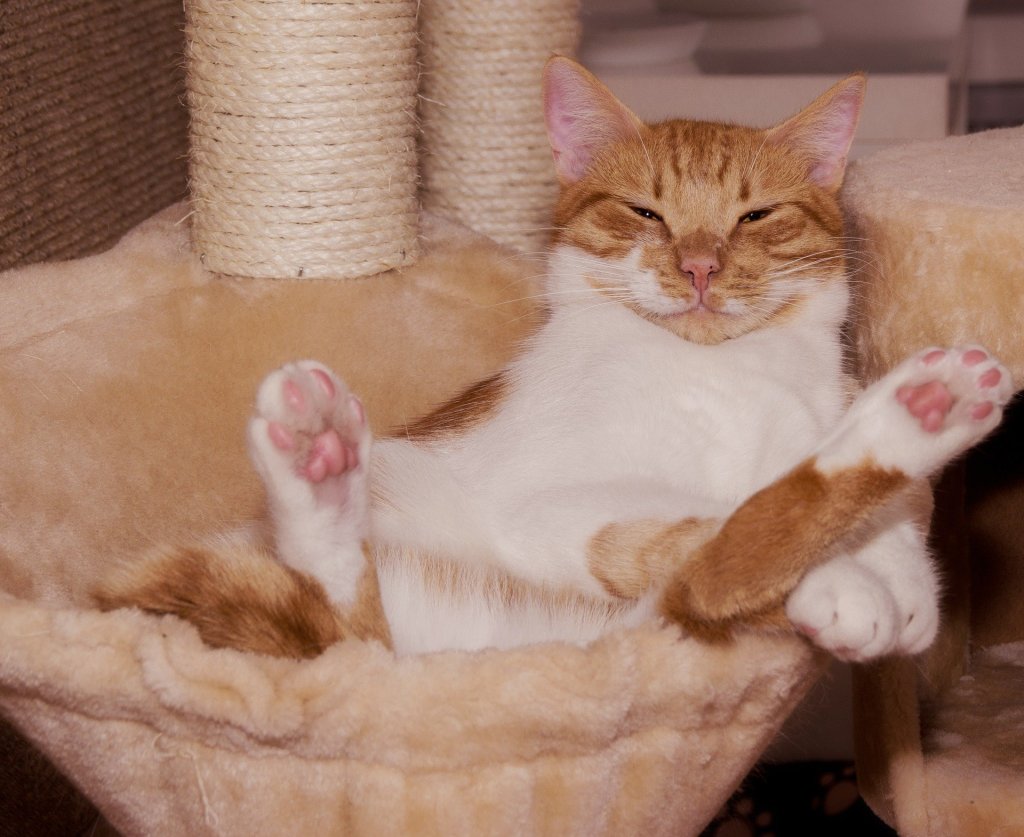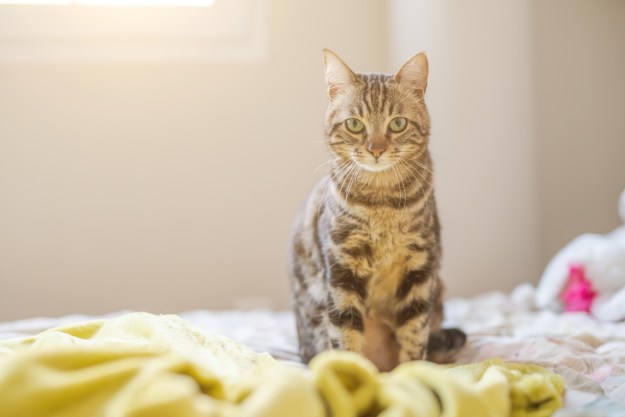Cats do weird things sometimes, and we love them for it! What would we watch on YouTube otherwise? But their strange behavior can also cause us cat owners some concern. If you’ve ever seen your cat sleeping with her eyes open, you know exactly what we mean. Not only does this look frightening, but it also might spur some crucial questions in your mind. Why do cats sleep with their eyes open? Is it a medical problem? Should I be worried? Keep reading to find out.

Can cats sleep with their eyes open?
They can. If you’re reading this article, you have probably already observed your cat sleeping through the day with her eyes open. Not all cats do it, and cats that can don’t usually do it all the time. The first time you notice your cat sleeping with her eyes open, it can be quite jarring. It looks a little spooky, and you may start to worry that something is wrong with her.
In the majority of cases, however, sleeping with open eyes is no cause for concern. Many cats sleep with their eyes partially open. Researchers have found that the trait is more common in older cats. Even though this behavior is normal, it’s still a good idea to keep an eye on your cat. In some rare cases, sleeping with their eyes open can indicate a medical issue. If you notice your cat sleeping with her eyes open and she’s twitching, schedule a vet appointment. You may have observed and then wondered why cats twitch during sleep as they are dreaming. If you have noticed such phenomena, take note: this could also be a sign that your cat has epilepsy. In these cases, it is always better to be safe and talk to your vet.

Why do cats sleep with their eyes open?
So while this behavior isn’t unusual, you may still be wondering why cats can sleep with their eyes open. The explanation may surprise you and make you marvel at your cat even more.
Just like us, cats experience a sleep cycle with multiple stages. When they are in a light sleep, their eyes are more likely to open. Although they are resting, their body is still aware of its surroundings and reacts to everything that’s going on. You may also notice their ears twitching and facing in the direction of whatever has caught their attention. While your home is a safe place, your cat’s instincts never take a break. Sleeping with her eyes open allows your cat to keep track of her environment and feel more at ease. During the deeper REM (rapid eye movement) sleep stage, most cats will not sleep with their eyes open (though it is still possible).
A cat may also sleep with their eyes open because of an injury. Cats have a translucent third eyelid beneath the other two. If this eyelid is wounded, your cat may be unable to close her eye. An eyelid injury is easy to spot, especially when your cat is awake. If the eyelid is damaged, the cat may need surgery. Luckily, eyelid damage is rare and probably not why your cat is dozing with her eyes open. But if your cat is experiencing any other symptoms, be sure to take her to the vet for a full checkup.

Should you be concerned?
In the grand majority of cases, the answer is no; there’s no reason to worry because your kitty is sleeping with her eyes open. However, if she’s showing other symptoms, like twitching, seizing, or eye trauma, you may want to schedule an appointment with your vet. They can let you know if your cat is experiencing a medical problem. Most of the time, though, it’s entirely normal — if spooky — for cats to sleep with open eyes. Nothing is wrong with your kitty.
Cats often do things that are weird, funny, and incomprehensible to us. Seeing your cat asleep with open eyes can be a bit unnerving. But just remember: Cats like to be aware of their surroundings, at all times, which can result in snoozing with their eyes open. Pretty normal, as cats go; nothing you need to lose sleep over.
Editors' Recommendations
- Wondering why cats chirp? Fascinating reasons why your cat chirps at birds (and you)
- There’s a totally normal reason cats throw up after eating grass – here’s why
- Your cat trilling is actually a good thing – here’s why
- Why do cats like to sleep on the bed with people? This common behavior explained
- Why you should feel honored if your cat sleeps at your feet




